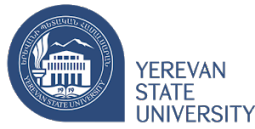Eric Mangez is Professor of Sociology at the University of Louvain (UCL), Belgium, where he teaches social theory, research method, and political sociology. Before being appointed as professor, he was postdoctoral fellow at the University of Edinburgh. He is the former codirector of a large FP6 integrated project funded by the European Commission, investigating the role of knowledge in the European Governance of Health and Education. His earlier work dealt with the sociology of the curriculum, education policies and family-school relations. He now develops a special interest in the sociology of Niklas Luhmann and its relevance for our understanding of the globalization and Europeanisation of education. He is author of Réformer les contenus d’enseignement (Paris: PUF, 2008); co-author of Bourdieu’s social field theory: concept and applications (Routledge Advances in Sociology, 2015); and coeditor of a forthcoming handbook on Globalization and Education (Oxford University Press, 2022). He is a former lead editor of the European Educational Research Journal.
Life without Stable Grounds: educational expansion and scapegoating
When drawing up a history of the future, thus comparing how society used to communicate about the future with the way it now communicates about the future, the dramatic decline of our convictions comes directly into light. Many normative certainties that characterized education and society are shattered. No longer understood as an improved version of the present and even less as a mere repetition of the past, our future stands instead as an endless source of uncertainty and possibility. This understanding of time permeates all major spheres of society. Modernity presents us with what Niklas Luhmann once called “a cosmology of contingency”: everything that is, could just as well be(come) different. How can one know what to do, what to believe, what to think?
This keynote will engage with two aspects of this global state of affairs. (1) It will reflect on the past evolutions which gave rise to this current situation by stressing the role played by knowledge and its intimate link with science and education. Never before has a society had so much information and data in so many domains and sub-domains, never before has a society been so aware of facing risks and uncertainties. How does this paradox, this double-sided Janus face of modernity translate into the classroom, into schools and universities? (2) In reply to this question, the keynote will provide a vista on the different ways by which education and education policy react to this lack of stable grounds. How does policymaking respond to increased uncertainties? What do teachers do when they no longer know what they should do? Rather than being an obstacle, this keynote contends, uncertainties have fed a global process of systemic expansion and an obstinate search for scapegoats.
Important Dates ECER 2022
07.12.2021 | Submission starts |
31.01.2022 | Submission ends |
01.04.2022 | Review results announced |
02.04.2022 | 10 days' period to confirm in-person or online presentation |
25.04.2022 | Registration starts |
15.05.2022 | Early bird ends |
25.06.2022 | Presentation times announced |
30.06.2022 | Registration Deadline for Presenters |
Conference Venue
Yerevan State University
1 Alex Manoogian
0025 Yerevan
Armenia
http://www.ysu.am/main/en


